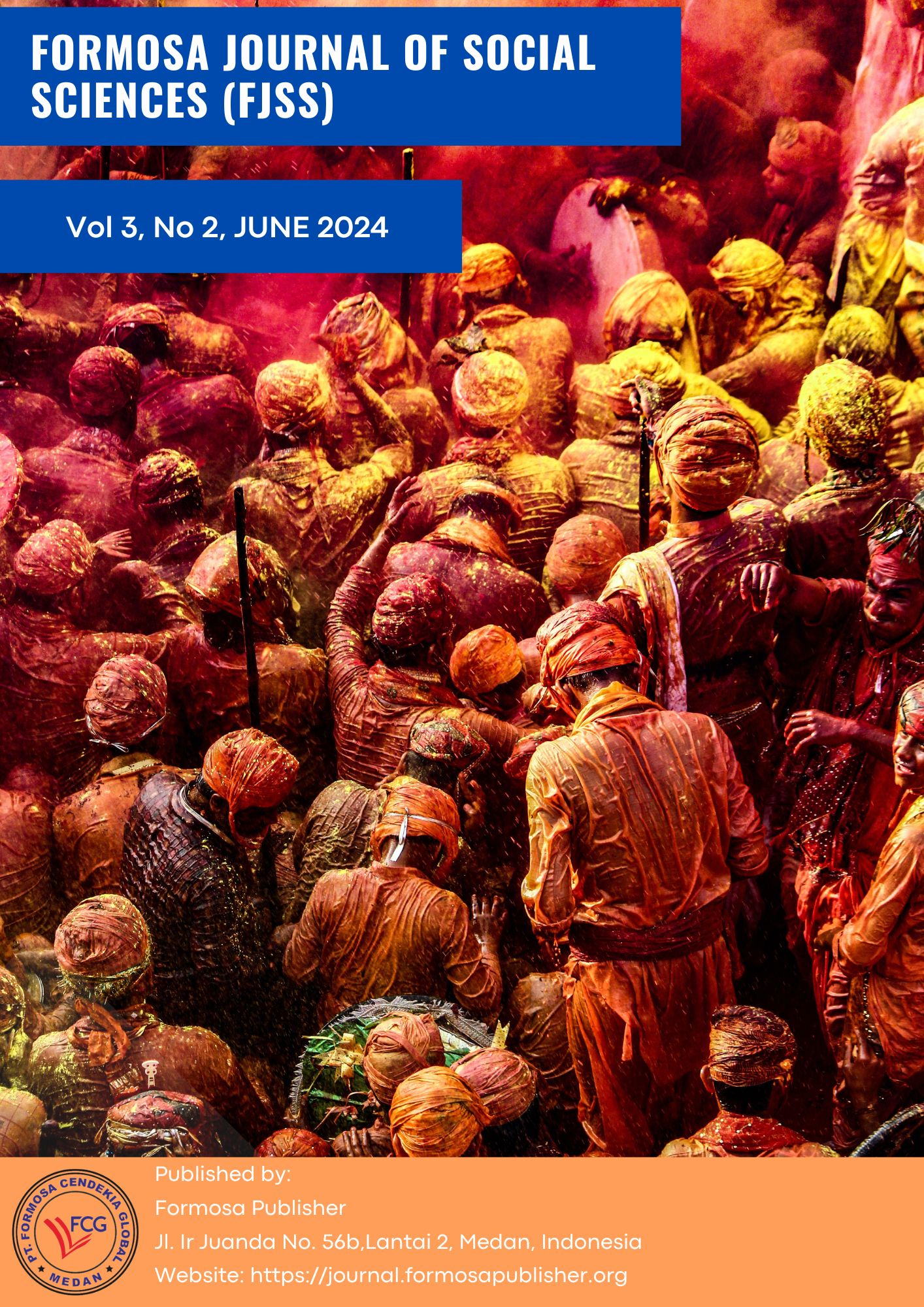Digital Evidence Tracing in the Investigation of Identity Theft in the E-Commerce Era
DOI:
https://doi.org/10.55927/fjss.v3i2.9797Keywords:
Investigations, Criminal Acts, Identity Theft, E-Commerce, CybercrimeAbstract
This research analyzes the application of regulations in prosecuting cyber crime in identity theft on e-commerce platforms in Indonesia. This study uses normative juridical research methods. This research considers various relevant laws, such as the Information and Electronic Transactions Law (UU ITE), the Criminal Code (KUHP), the Copyright Law, the Telecommunications Law, the Company Documents Law, and the Money Laundering Crime Law. Analysis shows that this law provides a strong legal basis for law enforcement to take action against cybercriminals and impose appropriate criminal sanctions. Apart from that, the law regulates electronic evidence, strengthening the investigation process against perpetrators. However, prosecuting cybercrime cases of identity theft on e-commerce platforms often experiences obstacles, especially in arresting suspects and confiscating evidence. This is due to the characteristics of digital crimes which are often complex and difficult to trace, as well as the lack of adequate capabilities and resources on the part of law enforcement in handling these types of cases. Greater efforts are needed to increase law enforcement capacity, as well as closer cooperation between authorities and e-commerce platform providers to increase the effectiveness of law enforcement in dealing with cybercrime
Downloads
References
Agus, A. A., & Riskawati, R. (2016). Handling Cyber Crime Cases in Makassar City (Study at the Makassar Kota Besar Resort Police Office). SUPREMACY: Journal of Thought, Research in the Social Sciences, Law and Its Teaching, 11(1), 20–29. https://doi.org/10.26858/supremasi.v11i1.3023
Antoni, A. (2018). Cyber Crime in Online Reading. Conscience: Journal of Sharia and Community Studies, 17(2), 261–274. https://doi.org/10.19109/nurani.v17i2.1192
Cassim, F. (2015). Protecting Personal Information In The Era Of Identity Theft: Just How Safe Is Our Personal Information From Identity Thieves? Potchefstroom Electronic Law Journal (PELJ), 18(2), 69–110. https://doi.org/10.4314/PELJ.V18I2.02
Dewata, M. F. N., & Achmad, Y. (2017). Dualism of Normative and Empirical Legal Research. Yogyakarta: Student Library.
Fadli, M., Widijowati, D., & Andayani, D. (2024). Phishing Cybercrime as reviewed in Criminology Perspectives. Co-Value Journal of Cooperative Economics and Entrepreneurship, 14(12), 824–835. https://doi.org/10.59188/covalue.v14i11.4335
Habibi, M. R., & Liviani, I. (2020). Information Technology Crime (Cyber Crime) and Its Countermeasures in the Indonesian Legal System. Al-Qanun: Journal of Islamic Thought and Reform, 23(2), 400–426. https://doi.org/10.15642/alqanun.2020.23.2.400-426
Hartanti, D. N., Titahelu, J. A. S., & Taufik, I. (2021). Application of Criminal Sanctions for Perpetrators of the Crime of Embezzlement of Cash On Delivery Money in Court Decision Number: 139/Pid.B/2020/PN.Amb. TATOHI Journal of Legal Sciences, 1(2), 110–124. https://doi.org/10.47268/tatohi.v1i2.553
Kamran, M., & Maskun, M. (2021). Fraud in Online Trading: A Telematics Legal Perspective. Balobe Law Journal, 1(1), 41–56. https://doi.org/10.47268/balobe.v1i1.501
Malalangi, H. E. (2022). Criminal Liability of Perpetrators of Credit Card Break-ins with Carding Mode According to the Information and Electronic Transactions Law. Lex Crimen, 11(3), 1–12.
Putri, M. A. A. (2020). Bank's Responsibility to Third Parties Who Change Internet Banking PIN and Transfer Customer Funds Reviewed from Banking Law. Al Qodiri : Journal of Education, Social and Religion, 18(1), 39–56.
Saputra, C. D. (2023). Legal Aspects of Telematics in Personal Data Protection. Journal of Legal Certainty and Justice, 5(1), 54–74. https://doi.org/10.32502/khk.v5i1.7968
Sari, I. (2014). The difference between forms of crime that are categorized as cyber crime and cyber warfare. Journal of Information Systems, Suryadarma University, 10(1), 241–260. https://doi.org/10.35968/jsi.v10i1.1002
Sartika, R., Siregar, S. A. I., & Kartika Sari, N. P. R. (2020). Specificity of the Cyber Crime Investigation Process. Journal of Actual Justice, 5(1), 38–55. https://doi.org/10.47329/aktualjustice.v5i1.519
Widodo. (2013). Criminal Law in the Field of Information Technology Cybercrime Law: Theoretical Analysis and Case Analysis. Yogyakarta: Aswaja Pressindo.
Wittadarma, I. G. P. B. P., Sugiartha, I. N. G., & Widyantara, I. M. M. (2022). Juridical Study of the Panel of Judges' Consideration of the Crime of Trademark Counterfeiting (Case Study of the Decision of the District Court. Denpasar No.1080/PID. SUS/2019/PN DPS). Journal of Legal Preference, 3(3), 531–536. https://doi.org/10.55637/jph.3.3.5592.531-536
Downloads
Published
How to Cite
Issue
Section
License
Copyright (c) 2024 Shinta Widhaningroem, Yeni Widowaty

This work is licensed under a Creative Commons Attribution 4.0 International License.








.png)

















